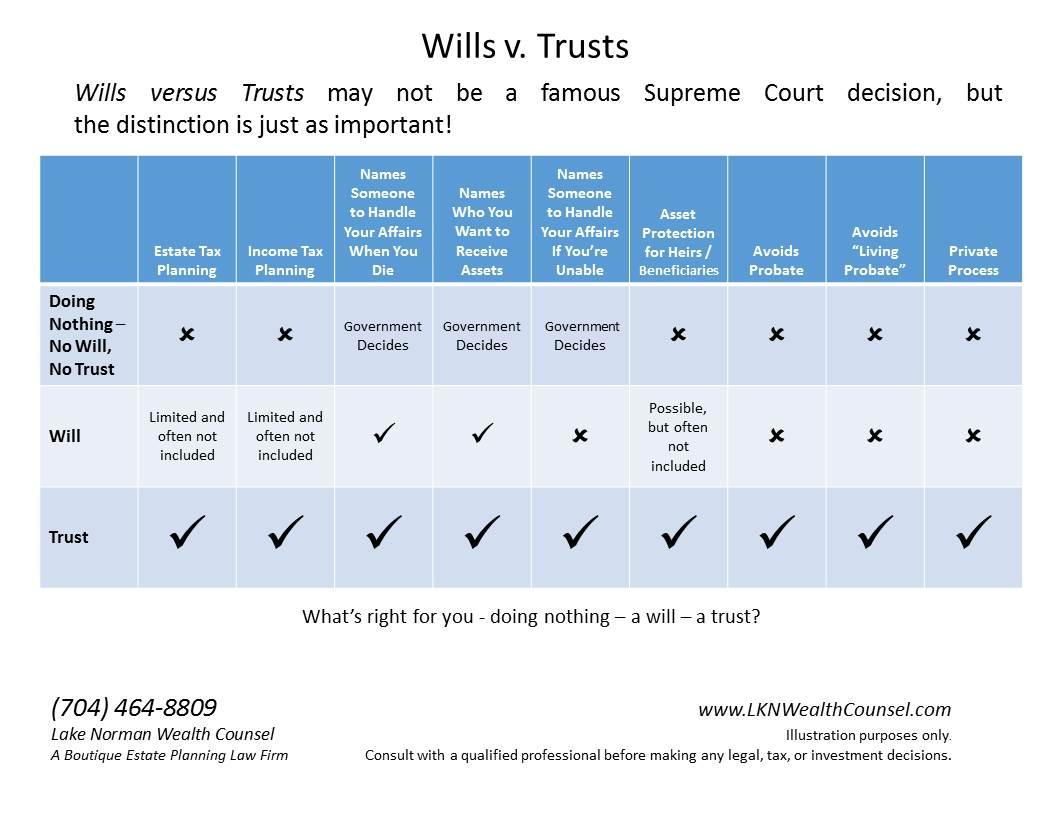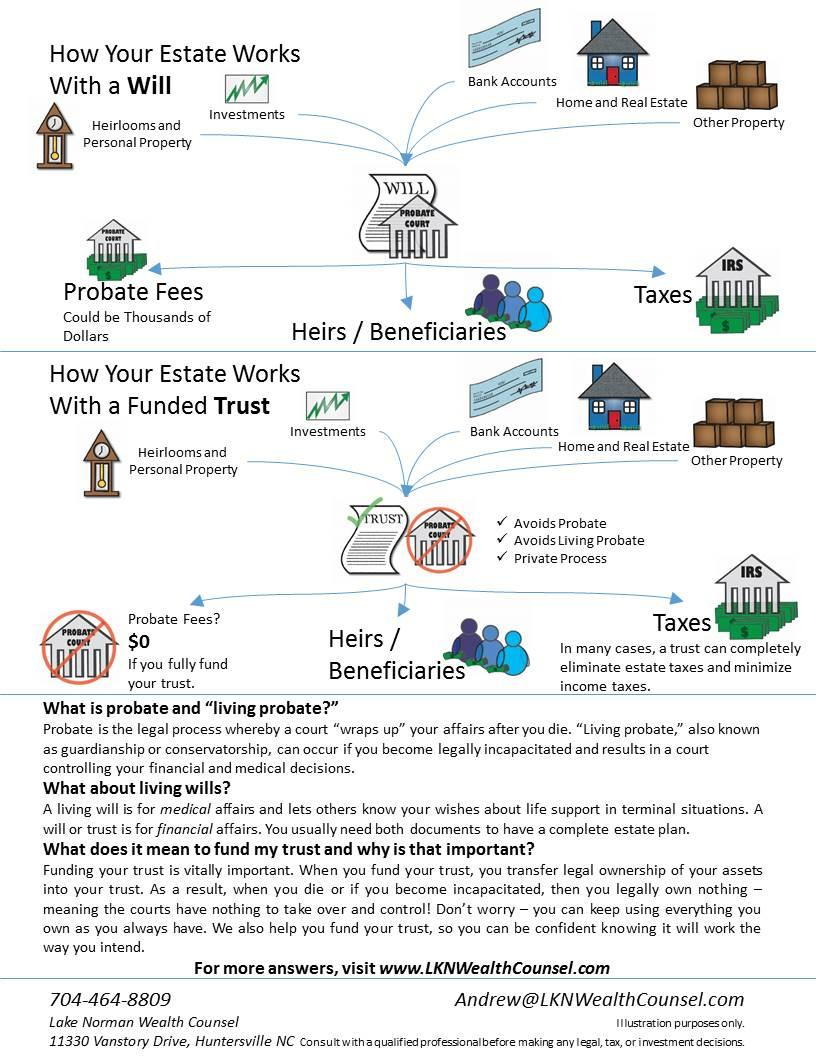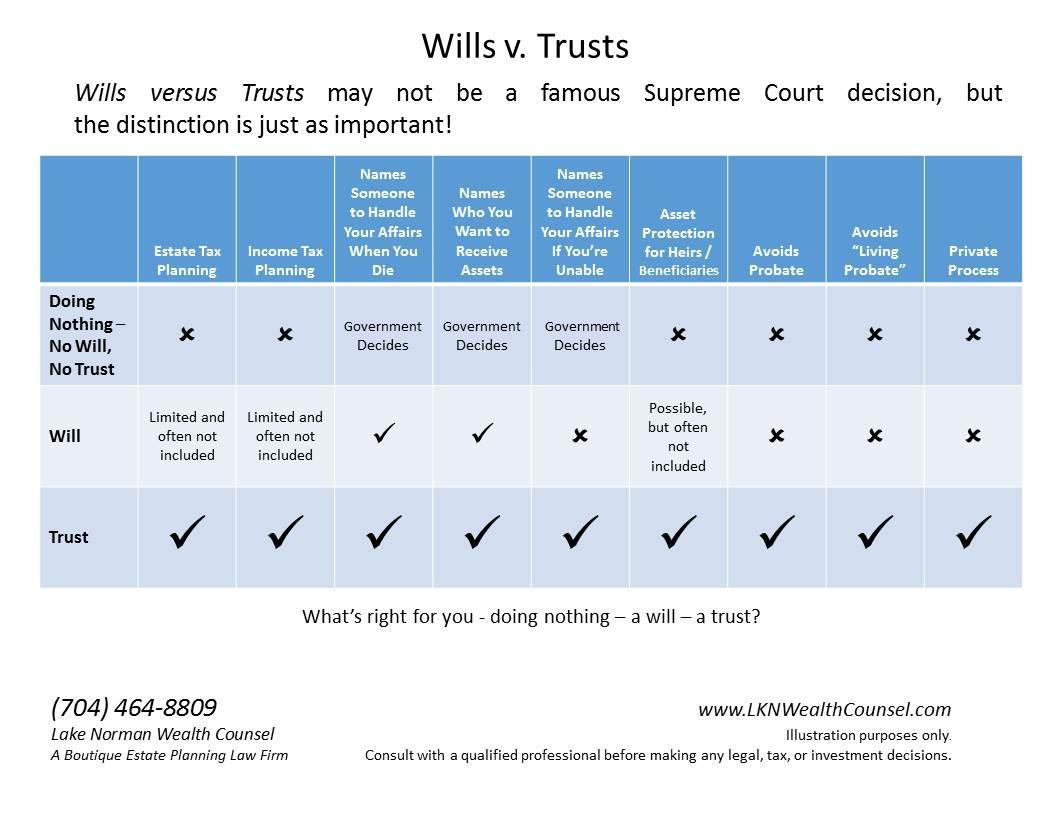Contact Us
Our Office
Reviews and Testimonials

- posted: Aug. 16, 2019
Wills vs. Trusts: A Quick & Simple Reference Guide
Confused about the differences between wills and trusts? If so, you’re not alone. While it’s always wise to contact experts like us, it’s also important to understand the basics. Here’s a quick and simple reference guide:
What Revocable Living Trusts Can Do – That Wills Can’t
- Avoid a conservatorship and guardianship. A revocable living trust allows you to authorize your spouse, partner, child, or other trusted person to manage your assets should you become incapacitated and unable to manage your own affairs. Wills only become effective when you die, so they are useless in avoiding conservatorship and guardianship proceedings during your life.
- Bypass probate. Property in a revocable living trust does not pass through probate. Property that passes using a will guarantees probate. The probate process, designed to wrap up a person’s affairs after satisfying outstanding debts, is public and can be costly and time consuming – sometimes taking years to resolve.
- Maintain privacy after death. Wills are public documents; trusts are not. Anyone, including nosey neighbors, predators, and unscrupulous “charities” can discover the details of your estate if you have a will. Trusts allow you to maintain your family’s privacy after death.
- Protect you from court challenges. Although court challenges to wills and trusts occur, attacking a trust is generally much harder than attacking a will because trust provisions are not made public.
What Wills Can Do – That Revocable Living Trusts Can’t
- Name guardians for children. Only a will – not a living trust or any other type of document – can be used to name guardians to care for minor children.
- Specify an executor or personal representative. Wills allow you to name an executor or personal representative – someone who will take responsibility to wrap up your estate after you die. This typically involves working with the probate court, protecting assets, paying your debts, and distributing what remains to beneficiaries. But, if there are no assets in your probate estate (because you have a fully funded revocable trust), this feature is not necessarily useful.
What Both Wills & Trusts Can Do:
- Allow revisions to your document. Both wills and trusts can be revised whenever your intentions or circumstances change so long as you have the legal capacity to execute them.
WARNING: There is such as a thing as irrevocable trusts, which cannot be changed without legal action.
- Name beneficiaries. Both wills and trusts are vehicles which allow you to name beneficiaries for your assets.
- Wills simply describe assets and proclaim who gets what. Only assets in your individual name will be controlled by a will.
- While trusts act similarly, you must go one step further and “transfer” the property into the trust – commonly referred to as “funding.” Only assets in the name of your trust will be controlled by your trust.
- Provide asset protection. Trusts, and less commonly, wills, are crafted to include protective sub-trusts which allow your beneficiaries access but keep the assets from being seized by their creditors such as divorcing spouses, car accident litigants, bankruptcy trustee, and business failure.
While some of the differences between wills and trusts are subtle; others are not. Together, we’ll take a look at your goals as well as your financial and family situation and design an estate plan tailored to your needs. Call us today and let’s get started.



